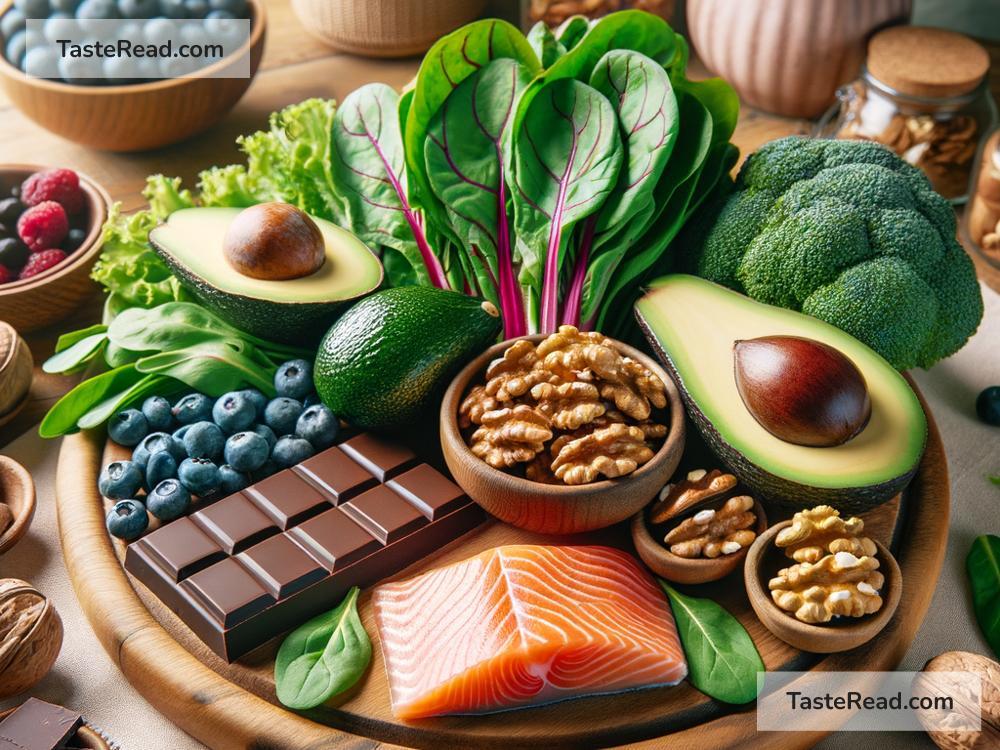Foods That Support Menstrual Health
Every month, millions of women worldwide experience their menstrual cycle. While it is a natural part of life, periods can bring discomfort, pain, fatigue, and mood swings. What many people don’t realize is that the food you eat can make a big difference in supporting your menstrual health and reducing some of the uncomfortable symptoms. By choosing the right foods, you can help your body stay strong, balance your hormones, and improve how you feel during your period.
In this article, we’ll explore some of the best foods that support menstrual health and explain how they help your body.
1. Leafy Greens for Iron Recovery
During your menstruation, you may lose iron through blood, especially if your flow is heavy. Low iron levels can lead to fatigue, weak muscles, and even dizziness. That’s why it’s important to replenish your iron levels with iron-rich foods.
Leafy greens like spinach, kale, and Swiss chard are excellent sources of plant-based iron. They’re also packed with magnesium, which can ease muscle cramps and bloating. Adding more greens to your plate—whether as salads, smoothies, or stir-fries—can give your body a boost during your period. Pair these greens with something rich in vitamin C, like oranges or tomatoes, as vitamin C helps your body absorb iron better.
2. Healthy Fats to Balance Hormones
Healthy fats play an important role in keeping your hormones balanced. Hormonal shifts during your period can lead to mood swings, bloating, and food cravings. Omega-3 fatty acids, found in foods like salmon, walnuts, chia seeds, and flaxseeds, are especially good for menstrual health. They can reduce inflammation and ease period cramps.
Avocados are another great source of healthy fats. They also contain potassium, which helps your muscles relax and reduces bloating. Try adding avocado slices to a salad or spreading mashed avocado on whole-grain toast for a satisfying, hormone-supporting snack.
3. Whole Grains for Energy
Feeling tired and sluggish during your period is common, but eating whole grains can help you regain your energy. Whole grains like quinoa, oatmeal, brown rice, and whole-grain bread are rich in complex carbohydrates that provide a steady source of energy throughout the day.
They’re also packed with minerals like magnesium and B vitamins, which play a key role in managing menstrual symptoms. B vitamins, especially vitamin B6, can lift your mood and help with feelings of fatigue. Start your day with a warm bowl of oatmeal topped with fruits and nuts, or enjoy a hearty quinoa salad for lunch to keep your energy stable.
4. Anti-Inflammatory Foods to Reduce Pain
Period cramps can make it hard to focus on anything else. To reduce pain naturally, it’s helpful to eat anti-inflammatory foods. Turmeric, ginger, and garlic are great choices for fighting inflammation. These spices can be added to soups, teas, or stir-fries for flavorful, pain-reducing meals.
Berries like blueberries, strawberries, and raspberries also have anti-inflammatory properties thanks to their high levels of antioxidants. Eating berries as a snack or blending them into smoothies can give your body what it needs to fight inflammation during your period.
5. Foods Rich in Magnesium for Cramps
Magnesium is a superstar mineral when it comes to easing period cramps and relaxing muscles. It can also help reduce mood swings by supporting your brain’s neurotransmitters.
Good sources of magnesium include nuts (like almonds and cashews), seeds (like sunflower and pumpkin seeds), and dark chocolate. Yes, you have an excuse to eat a square of dark chocolate during your period! Just make sure it’s not loaded with added sugar, as sugary foods can worsen inflammation.
6. Hydrating Foods to Fight Bloating
Bloating is a common struggle during menstruation, and staying hydrated is essential for reducing water retention. While drinking enough water is important, eating hydrating foods can also help.
Fruits like watermelon, cucumbers, and oranges have high water content and provide hydration along with vitamins and minerals. Coconut water is another refreshing option packed with electrolytes that can replenish your body after menstruation-related fluid loss.
7. Probiotic Foods for Digestive Health
Digestive issues like constipation or diarrhea can sometimes accompany your period. Probiotic foods help keep your gut healthy and improve digestion. Yogurt, kefir, sauerkraut, and kimchi are examples of foods packed with good bacteria.
When your gut is happy, your menstrual cycle may feel smoother. Adding a cup of probiotic-rich yogurt to your breakfast or enjoying fermented foods as part of a meal can boost your gut health during your period.
8. Avoid Processed and Sugary Foods
While it might be tempting to reach for chips, candies, or fast food during your period, these foods can make your symptoms worse. Processed and sugary foods may increase inflammation and cause energy crashes, leaving you feeling worse. Try to limit junk food and instead choose nutrient-rich options.
Conclusion
Making mindful food choices can play an important role in supporting menstrual health and alleviating some of the discomforts that come with your period. Foods like leafy greens, healthy fats, whole grains, anti-inflammatory spices, magnesium-rich snacks, hydrating fruits, and probiotic foods can all help your body feel its best.
Every woman’s body is unique, so take the time to notice which foods work best for your body during your cycle. By eating nourishing, wholesome foods, you’re not only caring for your menstrual health but also improving your overall well-being. Remember, small changes to your diet can make a big difference in how you feel!

